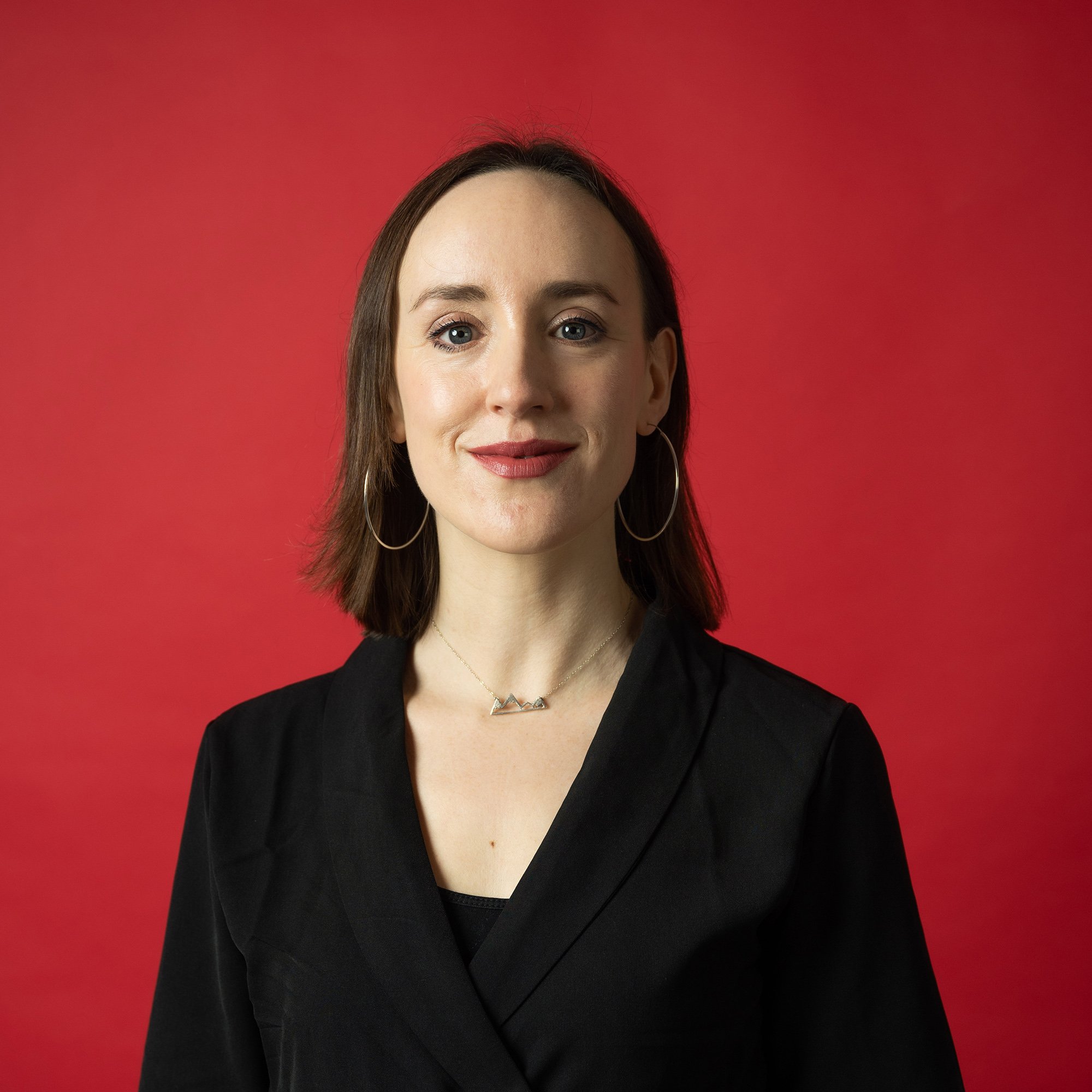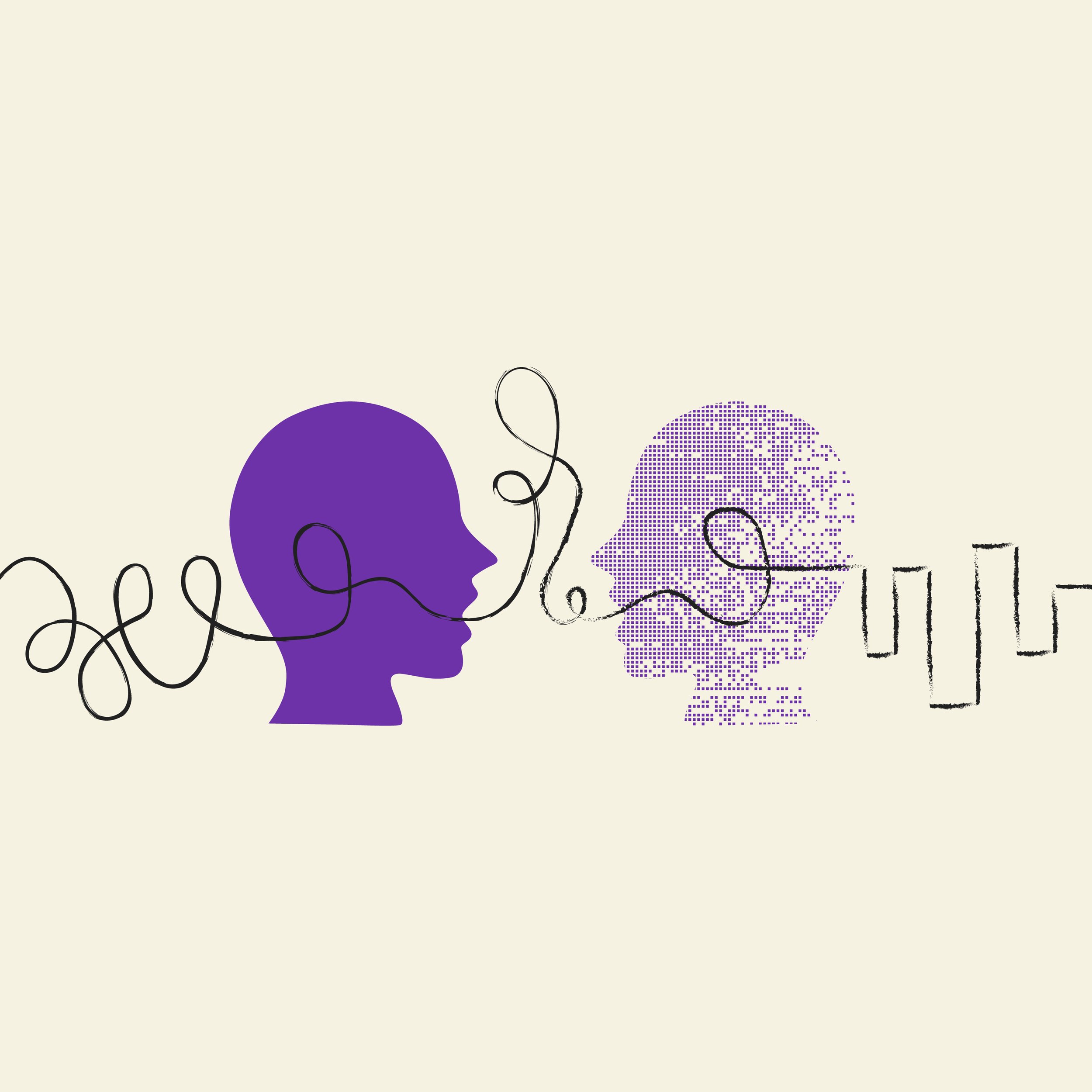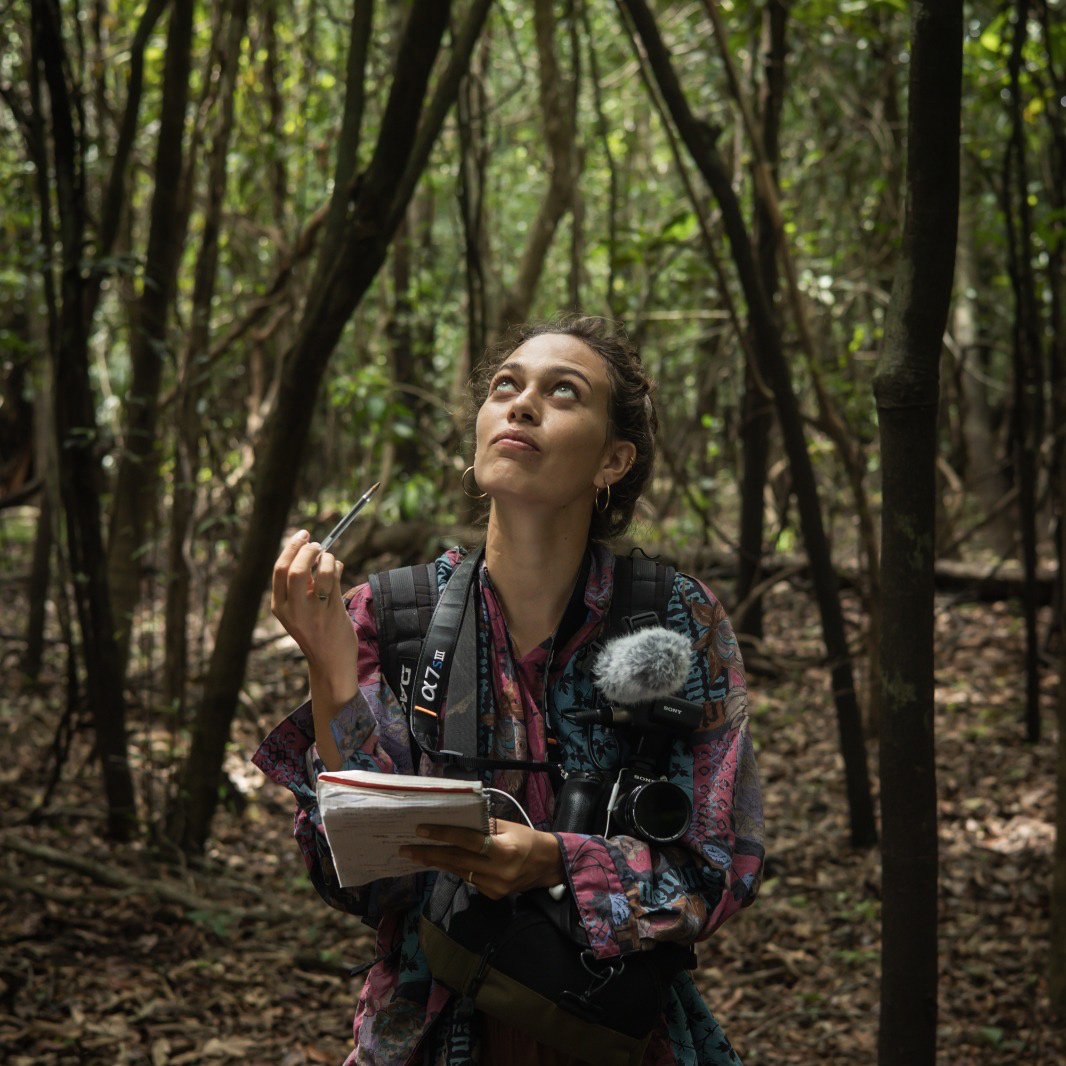Are Data Centers Compromising Our Collective Memory?
MARCH 27, 2024
The Reporter’s Notebook is our monthly interview series with Dial contributors. To receive these conversations directly in your inbox, sign up for our newsletter.
✺
A conversation with Jessica Traynor, whose reporting on Ireland’s data centers was published in our Order issue.
Data centers are proliferating across Ireland. For our Order issue, Jessica Traynor, a poet and writer based in Dublin, reported on the cultural implications and environmental toll of large-scale data storage. “Rather than creating something permanent and inviolable, we’ve made our memories more contingent than ever upon a fantasy of technological stability that, given the constant churn of history, seems inevitably fleeting,” Traynor writes. Dial intern Eythana Miller spoke with Traynor about how Ireland’s data-center boom has reshaped the country’s digital culture and economy, as well as how she engages with memory in her personal life.
THE DIAL: Your primary medium is poetry. How did that affect how you approached reporting and writing a longform piece?
JESSICA TRAYNOR: I’ve worked in a lot of different areas. I’ve been a freelance writer for the last three years, but before that I was deputy director of a museum in Dublin called EPIC The Irish Emigration Museum. Before that, I was literary manager of the Abbey Theatre, Ireland’s national theater. Both of those roles involved having to discover how to be resourceful, and a pragmatic attitude to getting things done. In my freelance writing career, I’ve had a number of commissions where my initial instinct is to say, I can’t do that. But then I got so excited about the idea that I said, Okay, if I don’t manage to do this, nobody’s gonna die, so I’ll give it a shot.
My undergraduate degree was in history, so that fascination underlies a lot of my poetry and prose. When I was thinking about how to approach this story, it was the historic lens that cracked it for me: how this phenomenon is a particular moment in Irish history, and how it might also say something about the state as a whole. It was the symbolic aspect of the data centers; how they house our memories and what memory means for us as a nation that made me think that I could possibly write something at least interesting.
As soon as I started thinking about data centers, I was thinking about the tech sector. Ireland is a small country, so people are very aware of how valued the tech sector is to the government, and they’re now becoming more aware of data centers. We have a short history as an independent country, so it is very easy to start pulling those historical threads and looking at how things connect. As a poet, that’s how my mind works: I think laterally and tease out all the disparate connections between things that feel somehow instinctive to me, and then try to understand why those things seem instinctively connected.
THE DIAL: How do you think the attempt to turn Ireland into a European tech hub has changed Irish culture and identity, if at all?
JT: One of the interesting rabbit holes I went down was looking at how we have attracted investors into Ireland since the middle of the 20th century, since the establishment of the Industrial Development Agency (IDA). At that time, there was a zero percent corporation tax, which was a massive statement of no confidence in Ireland as a state that might attract inward investment. From that time our politicians and policy makers have internalized this sense of, Well, why would anybody come here, which is understandable psychologically when you look at the hundreds of thousands of people who were leaving Ireland every decade of the 20th century, until the 1990s. Things have changed in more recent years: we saw close to zero net migration of Irish citizens in 2023, with as many returning as had emigrated, but the overall historical trend has been people leaving. My generation graduated around 2007-2008, straight into a recession, and everybody left again.
The role of the tech sector in Ireland is symptomatic of this lack of confidence that we have, as a nation, in ourselves. I think we give away far too much. Now we have, by Irish standards, a center-right government with conservative fiscal values. The two main parties are in power together at the moment, which sounds like a wonderful thing: the divides of the civil war, which split these two parties far apart, have healed. This is progress, but unfortunately their fiscal policies have been less progressive than many might have hoped. There are certainly benefits that accrue from how their policies attract data centers and benefit the tech sector, but it’s hard to show how those benefits translate to the taxpayer, for example. They are still sold as a big success story. There is a certain version of Ireland that is spun around that vision.
THE DIAL: How do you navigate your relationship with technology and data storage, and has it changed after diving deeply into the subject matter for your piece? Is there anything you do to preserve your work more concretely?
JT: I have a huge underlying anxiety about all of it — technology, data storage, and my personal archive — because, as a full-time writer and a mother of two kids under 10, there’s just so much to do. My phone shouting at me about my cloud storage is just another one of these little mosquito-like sounds. But I’m really bad at preserving stuff. I deleted 10 years of work accidentally from my Mac just before Christmas as well as one work in progress. The latter wasn’t very long, but it’s just gone. I brought it to the computer doctor guys and they were like, “No, you really deleted it.” So I am anxious about all of these things and I find it interesting, in particular, reading about junk data — that is, data that no longer serves a distinct purpose — and how much energy its storage consumes. While researching the piece, I had a moment of recognition that I’m not the only one who has this problem. We all have this problem, not just as individuals, but collectively, there is an accumulation of crap. All this stuff is building up. Not that I think the photos of my kids and my partner are crap, but you know, the 75,000 shots I accidentally took of my cat one day are. And they’re up there being stored. One of the big environmental concerns is around figuring out ways to filter this stuff. And addressing that means, by extension, the things that really need to be kept safe will be kept safe.
Writers who are further along in their careers say to keep your festival lanyards, keep your tickets to events, keep all of that stuff and some day a university library will come and buy that stuff from you. They will come to me and I will have one poster and maybe not even digital copies of my first book. I feel like I’m so far gone in my disorganization when it comes to that stuff that I just can’t get it back now.
THE DIAL: In researching the challenge of digital degradation, did you come across any innovative solutions or practices that could help mitigate these risks?
JT: A lot of people who read the article got in touch with me to say “Did you know. . . ,” and a lot of it was stuff that’s not happening in Ireland yet, like the Green Mountain SVG1 data center in Norway, which is powered by hydropower and uses a nearby fjord for cooling. I feel like the condition of humanity is, to use a really crap metaphor, nothing changes until the first few lemmings have fallen off the cliff. We wait until things have just gotten past the worst point to react. That can be true of everything. Look at how technology advances during war and how vaccine technology advances during a pandemic. We have to wait until the worst is happening, which is a frightening state of existence.
There are technology advancements going on all around data centers, which will make them more environmentally viable. The problem is that governments are going to be reluctant to enforce these potentially expensive investments. And the problem with data centers at the moment is there are so many other crises going on in the world. In the Irish context there are a lot of different crises happening that will pull focus away from the environment, which is the main concern when it comes to data centers. But I have no doubt that we will find ourselves in a place where we are better equipped to support data centers, or they’ll move elsewhere. So my forecast is short-term negative. Long-term, I don’t think data centers are going to be the thing that breaks us all.
THE DIAL: Do you see storytelling differently in the context of the ephemeral nature of digital data? Should we strive toward permanence in our media, or is there something to be gained from not holding onto what we create so tightly, when it is ultimately temporary?
JT: We are able to reconstruct the past through ecclesiastical, state, legislative, and legal records, which are always quite bloodless and dry. But they can give us enough to construct the shape of a life. The loss of the public records office, which I wrote about in the article, has been something that’s obsessed me for years.
I remember learning about it in school and just being devastated because Ireland is a country which has lost so much in terms of built history and historical records. When I go to the U.K. I see so much more; there, everything is preserved. You have housing stock dating back 700 or 800 years. In Ireland, we just don’t have a lot of that, apart from some churches and castles.. Housing stock for those who weren’t noblemen or women doesn’t exist because we were so impoverished for so long. You can discover the life of a medieval Irish person, there are records remaining, but we would have known so much more about ourselves if we hadn’t lost the public records office.
THE DIAL: Do you see the presence of data centers affecting local communities or the social fabric of Irish towns? Have you observed any direct impacts on your own community?
JT: People outside of Dublin are far more aware of the impact on the social fabric. When development is happening outside of small towns, that will usually provide employment. Throughout the 20th century, different industries have dotted the outskirts of many Irish towns. The sugar beet industry was a huge employer. The turf cutting industry was a major employer for people of the midlands where there were very few other opportunities for employment outside of agriculture. And there was computer manufacturing, which was a big deal in the ’80s and ’90s. And then pharmaceutical companies. All of these were big employers that have come and gone.
Similarly, with the computer manufacturing companies, there has been a shift from hardware to software. So when a new company comes to town, it’s a big deal for local communities. They want to know how many people will be employed there. But because data centers are vast operations that require very few employees, they’re not looked upon too kindly. The tradition in Ireland has always been that the international company comes in, provides employment, perhaps to people who are unskilled or who can do an apprenticeship and become involved. And these places have been the lifeblood of towns. The data centers do not provide that, so they are greeted with much more skepticism. Where I live on the north side of Dublin, they are far more invisible, because they tend to be in industrial parks, like the one I visited. Nobody knows that they’re there. But around the rest of the country, they are attracting a lot more notice, and the attitude towards them is, what are they doing for us, really?
✺ Read “Memory Machines” in “Issue 13: Order”
JESSICA TRAYNOR is a poet, essayist, and poetry editor at Banshee. Her third collection Pit Lullabies (Bloodaxe, 2022) was a Poetry Book Society Recommendation, an Irish Times book of the year, and a Guardian Best Summer Read. She is 2023 recipient of the Lawrence O’Shaughnessy Award for Poetry, and is a critic for The Irish Times.
Follow Jessica on Twitter
EYTHANA MILLER is a writer and editor from Montana. She was a California Humanities Emerging Journalist fellow and her work appears in CalMatters, The Berkeley Political Review, and Edible Shasta-Butte. A California transplant, she studies political economy at UC Berkeley.




